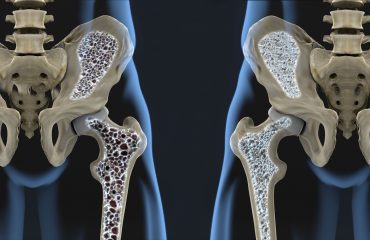Cognitive impairment is a broad term that encompasses many conditions. Judging when and how to screen for these conditions can be ambiguous. Screening people who do not need to be screened may increase the amount of unnecessary testing. However, missing people who are experiencing impairment may cause unnecessary harm to them. In February 2020, the United States Preventive Services Task Force (USPSTF) issued a report about the guidelines for screening for cognitive impairment in the hopes of making this process less ambiguous.
What is normal aging?
Many people expect a certain level of cognitive decline with normal aging. While the process is different for everyone, there are general characteristics that define normal aging cognitive decline. They have to do with the different types of intelligence.
There are two concepts of intelligence: crystallized and fluid intelligence. Crystallized intelligence includes knowledge and skills that are learned and practiced, like vocabulary. Fluid intelligence focuses on one’s ability to learn and process new information, which includes memory and psychomotor ability. Crystallized intelligence mainly remains stable throughout life. Fluid cognition peaks in the third decade and then declines steadily.
Cognition can be thought of in categories. Processing speed, attention, memory, language, visuospatial abilities, and executive functioning are the main categories. Processing speed refers to both cognitive processes and movement. Processing speed slows down in normal older adults, which may negatively impact other cognitive areas, like speaking quickly and clearly. Attention refers to focus, especially the ability to focus on the necessary information while tuning out the unnecessary information. It also includes multi-tasking. Older adults have difficulty holding onto information while manipulating that information. Memory is self-explanatory. Normal aging memory difficulties are normally related to processing speed decline. It is normal for people to slowly forget memories of their own life as they age. It is also normal older adults may begin to forget the meaning and usage of words.
What is cognitive impairment?
Cognitive impairment can be both mild and severe. It includes a decline that is greater than expected for normal aging, and even as severe as various forms of dementia. The milder form of cognitive impairment can include issues with memory, language, and cognitive processes. In some cases, judgement may even become an issue. These changes are mild when they are noticeable but do not interfere significantly with everyday life. Marked impairment is much more obvious and can interfere with everyday life. It can be difficult to differentiate between normal aging and cognitive impairment. There are certain hallmarks that doctors are familiar with, and different screening methods that can help differentiate the conditions.
What is the screening recommendation?
The goal of screening for cognitive impairment is to improve health outcomes through early identification. The USPSTF examined 287 studies that included 280,000 older adults. They argued that clinicians can screen patients when they are slightly suspicious because there is no harm to the patient or caregiver with screening. However, they also state that there is “insufficient evidence” to properly assess the benefits vs the disadvantages of screening for cognitive impairment. Essentially, this is a non-recommendation. This vague answer to the overarching question of the utility of screening can be broken down into smaller questions asked by the USPSTF.
They asked 5 main questions. The first question was about whether screening for cognitive impairment in older people who lived in the community was useful in a primary care setting. They only found one study that addressed the question, and the study did not conclude that there was any harm or any benefit to screening in this context.
The second question was whether the screening tests were accurate to detect cognitive impairment. There are multiple exams, the most popular of which is called the Mini-Mental State Examination. It is efficient but can detect the subtle distinctions between different types of impairment. They found that the Mini-Mental State Examination and the other tools they examined performed well in accurately detecting cognitive impairment.
The third question asked whether there was any harm to screening. They concluded that there was no evidence of harm, but that there may be insufficient evidence to truly assess the long-term harms.
The fourth question was aimed at helping people with mild to moderate dementia in the community. They wanted to see if there were treatment options beyond the usual medications. They found that physical exercise and cognitive activities have small benefit on those already afflicted with dementia. However, they did find that patient education and case management helped relieve some of the burden for caregivers.
The last question examined whether or not there were harms associated with treating patients with any degree of cognitive impairment. There was no evidence that suggested that the medications used are harmful. The other, non-medication based treatment options did no harm.
Conclusion
Cognitive impairment is a broad term that describes decline in thinking and associated processes. People are often concerned about the changes in their cognition as they age. Health professionals can help them understand if these changes are a part of normal aging or if they are something more concerning. Contact our Anti Aging and Wellness Clinic to learn more today.








